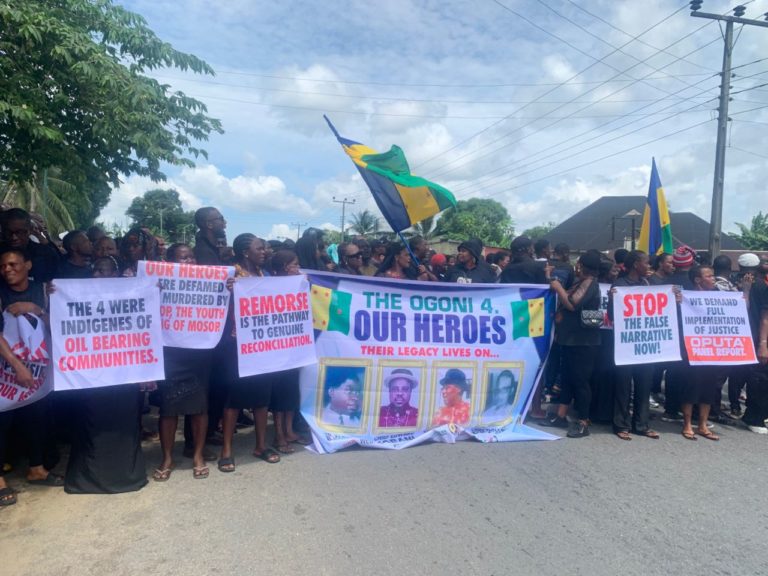And so, the debate rages on—leaving the conditions for oil production in Ogoni land hanging in the balance.
Thirty-one years after the brutal killing of four prominent Ogoni leaders, indigenes staged a peace march in Gokana Local Government Area of Rivers State, demanding justice, official recognition, and a national apology.
The memorial, held on May 21, 2025, also reignited calls for the slain men to be remembered as true martyrs of the Ogoni struggle.
The victims—Chief Edward Kobani, Chief Albert Badey, Chief Samuel Orage, and Chief Theophilus Orage—were murdered on May 21, 1994, during a meeting at the palace of the Medemene of Gokana. Their deaths were linked to the wider Ogoni agitation against oil exploitation by the Federal Government and its joint-venture partner, Shell Petroleum Development Company (SPDC).
Organised by the Gokana Unity Forum (GUF), the peace walk began at Mogho Junction and proceeded to the palace, where participants presented a petition. After the march, at the town square, the Secretary of the Gokana Unity Forum, Chris Barigbon, read out the forum’s four key demands:
– A public apology to the victims’ families.
– Official recognition of the four as Ogoni martyrs.
– A cenotaph in their honour.
– Declaration of May 21 as an annual Ogoni Day of Prayer and Atonement.
Speaking to journalists at the event, former Minister of Industry, Trade and Investment, Kenneth Kobani, son of one of the deceased, decried what he called false narratives around the killings.
“These men gave their lives for Ogoni. They deserve honour, not accusations,” he said.
“What did they benefit from killing them? ” he asked rhetorically.
“They have labelled these honourable men vultures, for what? Just because they wanted the good and progress of Ogoni through dialogue with the then Government, ” Kobani noted.
The demonstrators also referenced renewed calls by some Ogoni groups for the exoneration of the Ogoni Nine, including Ken Saro-Wiwa, who were executed by the military regime in 1995 after being accused of masterminding the murder of the Ogoni Four. They insisted that such calls should not overshadow the pain of the victims’ families, nor rewrite history.
They rejected renewed calls for the exoneration of the Ogoni Nine—who, according to them, were found culpable by the Oputa Panel and sanctioned accordingly.
Still, some Ogoni leaders and their apex group, MOSOP, insist that the exoneration of Ken Saro-Wiwa and others must precede any move to resume oil exploration in the region.
And so, the debate rages on—leaving the conditions for oil production in Ogoni land hanging in the balance.

